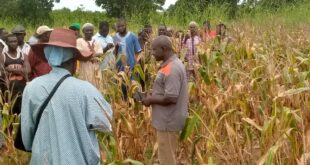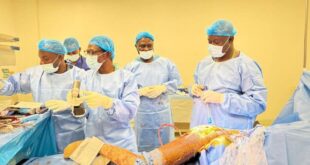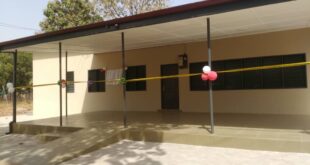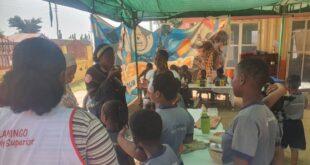Sagnarigu, Ghana – The Ghana Veterinary Medical Association (GVMA) has lauded government’s “Rearing for Food and Jobs (RFJ)” programme and pledged its unflinching support towards ensuring that the programme achieve its desired goals.
It says considering the rate at which the country imports more than half of its nutritional requirements, the RFJ was one of the surest ways by which the government could possibly deal with the problem of too much importation of chicken and other meat products.
For instance, in order to offset the deficit in the demand for meat and meat products, about US$350 million is spent annually to import 158,000 metric tonnes of chicken. This translates into over 100 million chickens according to the GVMA’s President, Dr. Hope Richard Otsyina.
Addressing the 45th Annual General Meeting of the GVMA at Sagnarigu in the Northern Region of Ghana, Dr. Otsyina said “the reliance on our neighbours including Burkina Faso, Mali, Cote D’voire and Niger for beef, mutton and chevon to augment imported chicken to meet our deficit does not augur well for the growth of Ghana.
“Currently, Ghana imports livestock and livestock products such as cattle, sheep and goats, pigs and chicken, which could easily be produced in-country. Even, as I speak truckloads of livestock can be seen travelling from our neighbouring countries down to the south for our consumption. This situation has not only resulted in very high cost of meat and other livestock products but also led to a very high level of unemployment”, he said.
Dr. Otsyina also observed that the lack of veterinary structures including accommodation, means of transport and vaccine production centres in most districts across the country would be a challenge to the success of the RFJ.
“…..a well-resourced and well-motivated veterinary service is key to the success of the RFJ programme. We the GVMA, Veterinarians of Ghana, are ready to take the baton to the next level, we are ready and poised for action. Ghana must be the Ghana we all dream of. We are lending a hand of support to the government and the people of Ghana……”, he declared.
Chief Executive of the Northern Development Authority (NDA), Dr. Majeed Haroun, said the country especially the Northern Savannah Ecological Zone had a huge potential for the growing of fodder for livestock.
According to him, the country could make approximately US$40 million annually from the cultivation of fodder, adding “We’re in collaboration with the Kwame Nkrumah University of Science and Technology conducting a research to determine the types of soils favourable for the cultivation of alfalfa grass which is in high demand in the gulf region”.
Dr. Haroun urged the people of Northern Ghana to continue to exercise some restraint and that very soon his outfit would roll out initiatives including the cultivation of grass which would bring them more money including what they make from livestock and other farming businesses.
The 45th AGM of the Ghana Veterinary Medical Association which was on the theme “Rearing for Food and Jobs: The Role of The Veterinarians” brought together members of the association, livestock farmers and other stakeholders to deliberate on the role they can play to effectively ensure the success of the RFJ programme.
By SavannahNewsOnline.Com/Philip Liebs
 Savannah News Online Reporting Only What Matters Most
Savannah News Online Reporting Only What Matters Most



